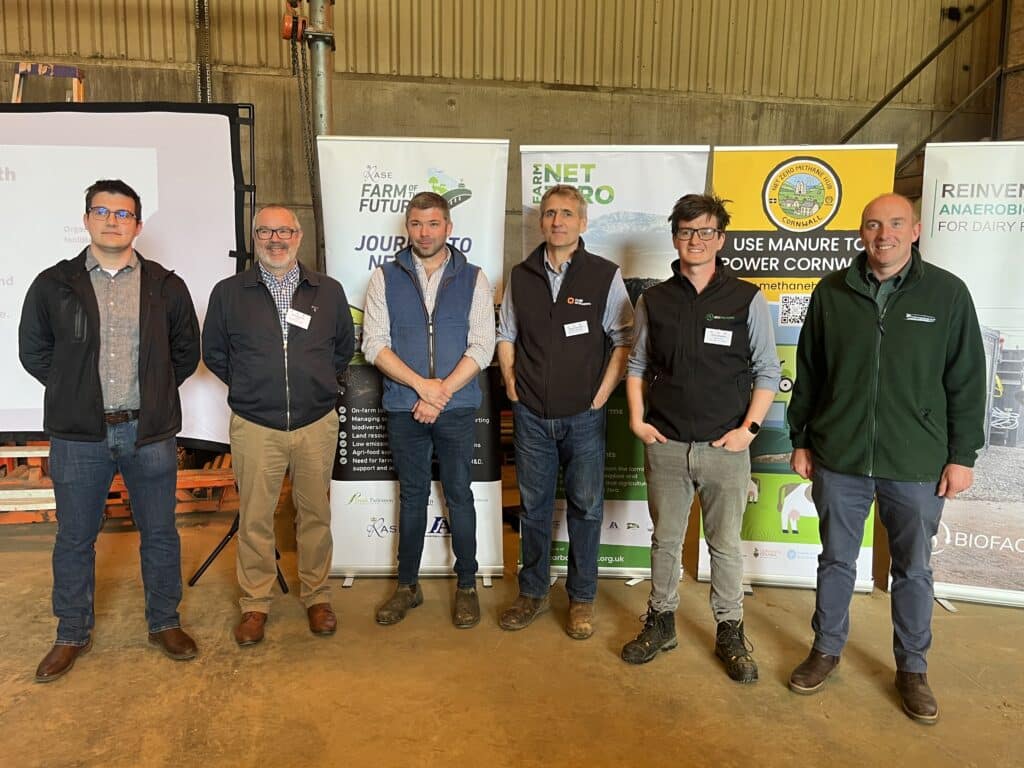Main Menu

Over 40 farmers and industry representatives convened at Dillington Farms, Ilminster, on 31st March, to find out how anaerobic digestion (AD) and methane capture can be used to manage methane emissions while enhancing farm profitability.
The event, funded by IFEAA’s Net Zero Methane Hub and delivered by Innovation for Agriculture, provided a first-hand look at the onsite Biolectric AD plant, which was integrated with the farm’s robotic milking system. It also included a showcase of farm scale AD and methane capture technologies provided by representatives from Biolectric, BioFactory, Bennamann, WASE and QUBE Renewables.

“Rather than fretting about methane as waste, we need to see it as a resource that has monetary value,” he said.
Mr Eustice explained that the technologies seen at the event – which included a modular AD system that fits into a shipping container and technologies to facilitate methane capture from slurry lagoons – remove methane that would otherwise enter the atmosphere and provide opportunities to produce electricity, heat or biofuel, which subsequently reduces farm energy costs.
“There is potential to displace diesel use on farms, as we now have tractors that can run on biomethane,” said Mr Eustice. “And we’ve also seen technologies that use the methane in generators to produce electricity on-farm.”
Also speaking at the event, Ollie Blackburn, farm manager at Dillington Farms, shared that use of the Bioelectric AD plant to process 70% of the manure from their 350-cow herd has resulted in a £4,500 saving in electricity costs per month.
“It makes perfect sense for us to harness what the cows are producing every day and turn it back into power that can be utilised across the farm,” said Mr Blackburn. “For us, the AD plant is part of the whole integrated system for sustainable dairy production.”
Digestate, which is produced via AD, was also discussed at the event, due to its potential to increase the palatability of grassland, improve arable yields and reduce the use of fertiliser by a third. In the case of Dillington Farms, digestate use was preventing 90 tonnes of CO2eq emissions per year.
Mr Eustice emphasised the need to showcase AD and methane capture as vital methane reduction solutions.
“There’s huge potential for circular economy solutions. What we need to do is remove the barriers, make sure we have a regulatory regime that is fit for purpose, and identify ways to raise the finance so we can accelerate deployment of these technologies,” he said.
The event was free for farmers to attend, as it was funded by IFEAA’s Net Zero Methane Hub, which is supported by Cornwall Council Shared Prosperity Fund.
Share this post
Follow us on Instagram

Sign up to our newsletter
Stay updated to the latest news and exclusive promotions right in your inbox.
Request a free monthly Farmart Magazine.

Request a free monthly Farmart Magazine.
